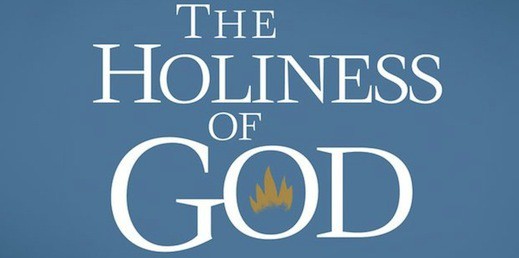I mentioned in this morning’s A La Carte that my youngest daughter had learned how to sleep (or had taught herself, more properly). Last night she had a nightmare, the first in probably six months, and was wide awake in terror for a long, long time. That meant I was also wide awake (though not in terror). So I am going to use the little bit of awareness I have to share just a few of my favorite moments from this week’s chapter of The Holiness of God as we continue to read the classics together.
Summary
This week’s reading was quite a bit different from the ones before it. Chapter 5, “The Insanity of Luther,” is almost a biographical chapter that looks at the struggles of Martin Luther as he came face-to-face with the holiness of God. Luther, even before he came to understand what would be known as Protestant theology, had a profound sense of God’s holiness. And that holiness very nearly drove him crazy. He had a clear assessment of the infinite gap in holiness that existed between himself and his Maker. Sproul points out, “Whatever defense mechanisms normal people have to mute the accusing voice of conscience, Luther was lacking.” He was devastated by every little sin, knowing that each one of them was sufficient to condemn him to hell.
It has been said many times that there is a fine line between genius and insanity and that some people move back and forth across it. Perhaps that was the problem Luther had. He was not crazy. He was a genius. He had a superior understanding of law. Once he applied his astute legal mind to the law of God, he saw things that many people miss.
Luther simply looked to the laws of God, saw how he fell short, and knew that he was a condemned man. This was far more genius than insanity, far more light than darkness.
Luther “realized that if God graded on a curve, He would have to compromise His own holiness. To count on God doing so is supreme arrogance and supreme foolishness as well. God does not lower His own standards to accommodate us.” Luther realized that even our good deeds are none too good.
God commands that we do certain good things. He commands us to give to the poor. We give to the poor. That is a good deed, isn’t it? Yes and no. It is good in the sense that our outward act conforms to what God commands. In that sense we do good often. But God also looks at the heart. He is concerned about our deepest motivations. For a good deed to pass the standard of God’s goodness, it must flow out of a heart that loves God perfectly and loves our neighbor perfectly as well. Since none of us achieves that perfect love for God and our neighbor, all of our outwardly good deeds are tarnished. They carry the blemish of the imperfections of our inner motivations. The logic of the Bible is this: Since no one has a perfect heart, no one does a perfect deed.
And this is what Luther would have to reconcile: How could a holy God ever accept an unholy man? The answer to this question would spark the Reformation and change the world.
I will leave you to read Luther’s testimony, but for this sentence: “Then I grasped that the justice of God is that righteousness by which through grace and sheer mercy God justifies us through faith.” That made all the difference to the apostle Paul; it made all the difference to Luther; it makes all the difference to you and me.
Next Week
For next Thursday please read chapter 6, “Holy Justice.”
Your Turn
The purpose of this program is to read these classic books together. This means that it’s now your turn to offer your thoughts or your questions on this week’s reading. You can do so by leaving a comment here or by posting a link to your own site if you left a comment there. Of course there is no need to say anything. Just read and enjoy if that’s more your style.










